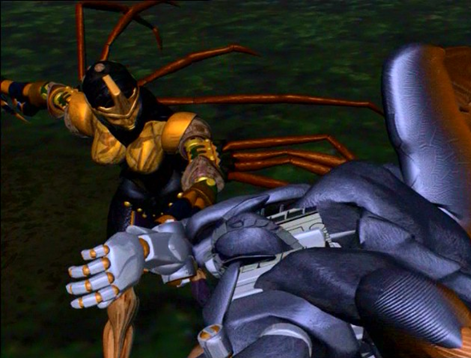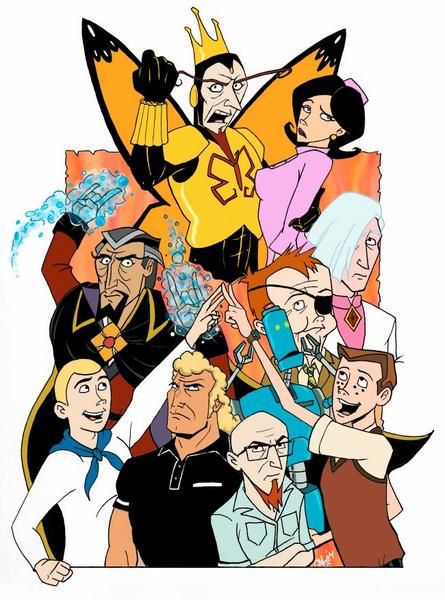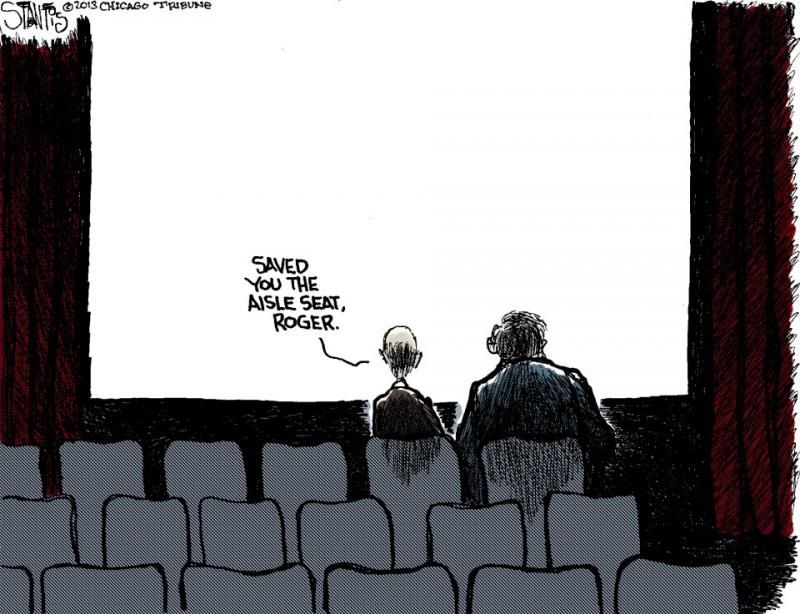Fred Wolf Episode #10
Written by Martin Pasko
Directed by Bill Wolf
Original Air Date: October 31st, 1988
--All right, now for something different. No, really: it's obvious by now that I'm writing about my favourite FW Baxter Stockman episodes first, but it's just what I felt like doing. I'll get to FW Splinter and the 4Kids series eventually, which I will discuss the absolute best version of Baxter Stockman.
--While FW Baxter Stockman is one of my favourite characters in the series, I'm content with his role as the simpering henchman. I don't want him to be a more competent or stronger villain, but like him the way he is. It would be different if that role was overdone, but as a brief thing, it works for me.
--However, I still enjoy this episode because of its novelty, and because Baxter is happy for a little bit. It's about him having that One Good Day, in which, even before he has the title Macguffin, he's surprisingly shrewd, successful and focused. It's fun exactly because it's different, while not being completely out of character.
--This also relates to a point I made before: that there's a difference between enjoying a character as a trainwreck, and enjoying a character as a trainwreck while having some emotional attachment to them, when you might give a damn about what happens to them. The main Fred Wolf villains are very funny, but Baxter is the only one I like as a character.
--The evens of this episode are also not a redundant cycle of betrayals like, Starscream from the original Transformers cartoon, but only happens once and so is not overdone, not straining the credibility too much. It's like the rest of Baxter's character, which benefits from a constantly changing role and a low amount of screen time.
--…by the way, I spell it "Eye of Sarnath" because that's the way the Archie comics did it. I'm not gonna fight anybody over this, even though I know the fandom does.
--I love that in a series with advanced technology, Baxter has to wear an old-fashioned diving suit to go pick up the Eye's last fragment. And Shredder with the rain slicker over his costume is always hilarious.
--I know it's possible to disagree, but I always felt, "And I recovered it!" was one of those lines that shows Baxter still has an arrogant side, however briefly it surfaces. Of course, we get a lot of evidence for it in this episode, either way.
---I don't know why, but I don't think seeing the Shredder without his mask is a big deal. In the limited world of TV animation, it's always notable when a character changes even a little from their standard look, but I guess I'm too used to the Shredder without a mask after watching the series so much as a child.
--This is part of what I mean by One Good Day: Baxter is quick with the camera in his glasses, and with the weird costume-destroying ray gun, which conveniently sics the nearby greedy dockworkers on the Turtles, and it's all startlingly competent.
--You know, even though it depends on the series suddenly remembering the Turtles are supposed to be in hiding / subversives / fugitives…for some reason.
--Bonus dragon! Though, it must be a really cheap Chinese restaurant if it has a European dragon on the logo. Whose design was completely recycled for a monster in "Leonardo versus Tempestra".
--Jeez, those weird dubbed-in screams. Fans call it the "girly grunt" when a Turtles' exclamation comes out as a whispery feminine gasp, and I'm curious as to how animation ends up making such a flub.
--Of course, the episode spends a lot of time messing around with other junk before Baxter gets the Eye, and most of it I don't mind, but god, do I hate Blodgett, just like I dislike all the other nerdy, nebbish guys in the series except for Baxter himself.
--I mean, there's pathetic nerd, and then there's pathetic nerd, you know? I'm glad no one ever brought Blodgett back, but why pad out the plot and delay the climax with a one-shot character?
--So the dragon starts to fall because the two Turtles are weighing it down. Physics? And dragons? Please. Once you've got a dragon moving around, you might as well stop pretending that physics matter at all.
--I laugh at Shredder slipping and falling into the pool on the abandoned cruise ship (?). If he wasn't a comical villain, he'd have nothing going for him.
--The self-help tape Blodgett has is pretty insufferable only because Blodgett himself is, but I like that it's authorship is attributed to Walter Kubiak, the producer in the series, and that it's making fun of something for adults, which I've been trained to appreciate in my cartoons, due to being a child of the nineties.
---Though how the fuck can Blodgett hear his headphones through the helmet?
--Oh, Splinter, just stating the obvious as your charges prepare to go out once more. Times like this where I can almost break my nostalgic attachment to FW Splinter, in realizing his wisdom is not all it's cracked up to be. And then the feeling passes, though I still suspect if it wasn't for nostalgia, Baxter, not Splinter, would be my favourite.
--Why's Shredder's faceplate drawn as a bandanna in that scene?
--Anyway, Baxter's actions in "Curse of the Evil Eye" are not the result of a mind corrupted by being near absolute power. The only thing the Eye might do give Baxter the courage to act, since Baxter is a weak person who only attacks others when he has a plot device to hide behind, but he definitely has an evil side that we have seen before.
--I love the way that Baxter just hovers at the window, watching Blodgett, for no reason whatsoever. His line, "Because you're an idiot, that's why!" cracks me up every time, mostly because of the irony.
--As does that bizarre as hell gun Baxter's got, which produces a formally-dressed man's arm and leg to smack Blodgett around. Pure poetry!
--Of course, as I've said before, FW Baxter is smart, but he's also very, very stupid in some ways, including not bothering to think about the possibility of the Eye not working on gold, and abandoning the Sarnathometer where anybody could get it. Though in the latter case, his dumbassery saved his life.
--He's such a blonde, in other words.
--On the other hand, how can you expect to have anybody keep up with all these new contrived rules?
--His actions are also not simply about paying the Shredder back for mistreatment, but about achieving the lost recognition he thinks he deserves, the acknowledgement of his "genius". It shows that this is a villainous character, regardless.
--He and 4Kids Baxter really are alike, up to and including referring to themselves in third person when they really get off on a tear. I still believe the resemblance is coincidental, however.
--Baxter still looks hysterical with that helmet on, and that means all's right with the world.
(I also can't help but think of G1 Galvatron…both beloved characters with shrill voices and questionable sanity.)
--Well, self-proclaimed "genius" or not, Baxter sure isn't imaginative when it comes to creating his evil headquarters.
--At first I thought the creature dubbed "Cement Man" by the video games was some kind of pizza dough monster. Because of this series…can you imagine why I thought that?
--Baxter's monsters remind me of the Inhumanoids, though not nearly as cool. D'Compose versus the Turtles would sure have been something.
--Oh, and the lighting monster was also recycled for "Leonardo Versus Tempestra".
--And fucking Blodgett grabs the Sarnathometer. Yeah.
--"Traitorous vermin." Hah. Ha. Haha.
--Both Shredder and Blodgett trying to grab the helmet at the same time is just hilarious.
--But then, Baxter's luck runs out (due to his own oversight). I love the way that Shredder gets his helmet back—he pounces on Baxter, seems to poke him in the forehead (complete with a "Poit!" sound), and the helmet just pops off, while Baxter seems to faint.
--Of course, any villain, even a goofy one like FW Shredder, would either kill Baxter or fire him after this, and there's no way to explain why the Shredder didn't do it, especially when he obliquely threatened to.
--And no, I don't believe trying to kill Baxter in "Enter the Fly" was the direct result of this incident. With something like this, the consequences would be immediate, or none at all. The events in the latter episode depend entirely on the events in that same episode.
-- Splinter just pops their confining bubble. Easy.
-- More delightfully silly visuals: Shredder on a magic carpet, stone monsters…
--More contrivances: Donatello suddenly figures out the Eye and the Sarnathometer will cause an explosion when together. April just happens to know where to get some gold shields. Sheesh
--I love that they reference the possibility of Shredder's death, even obliquely.
--Still more Blodgett, and this time they're aggrandizing him and keeping him around till the end of the episode. I don't know…where they planning to make him a regular, or did they just need to pad out the script?
--So, this episode is one of my favourites. If there had been more like it, it would have been less special, but as it is, it takes FW Baxter in a different direction that manages to make perfect sense for him and still be funny. It's a good end to a Macguffin hunt, and it also aired in the U.S. on Halloween.



